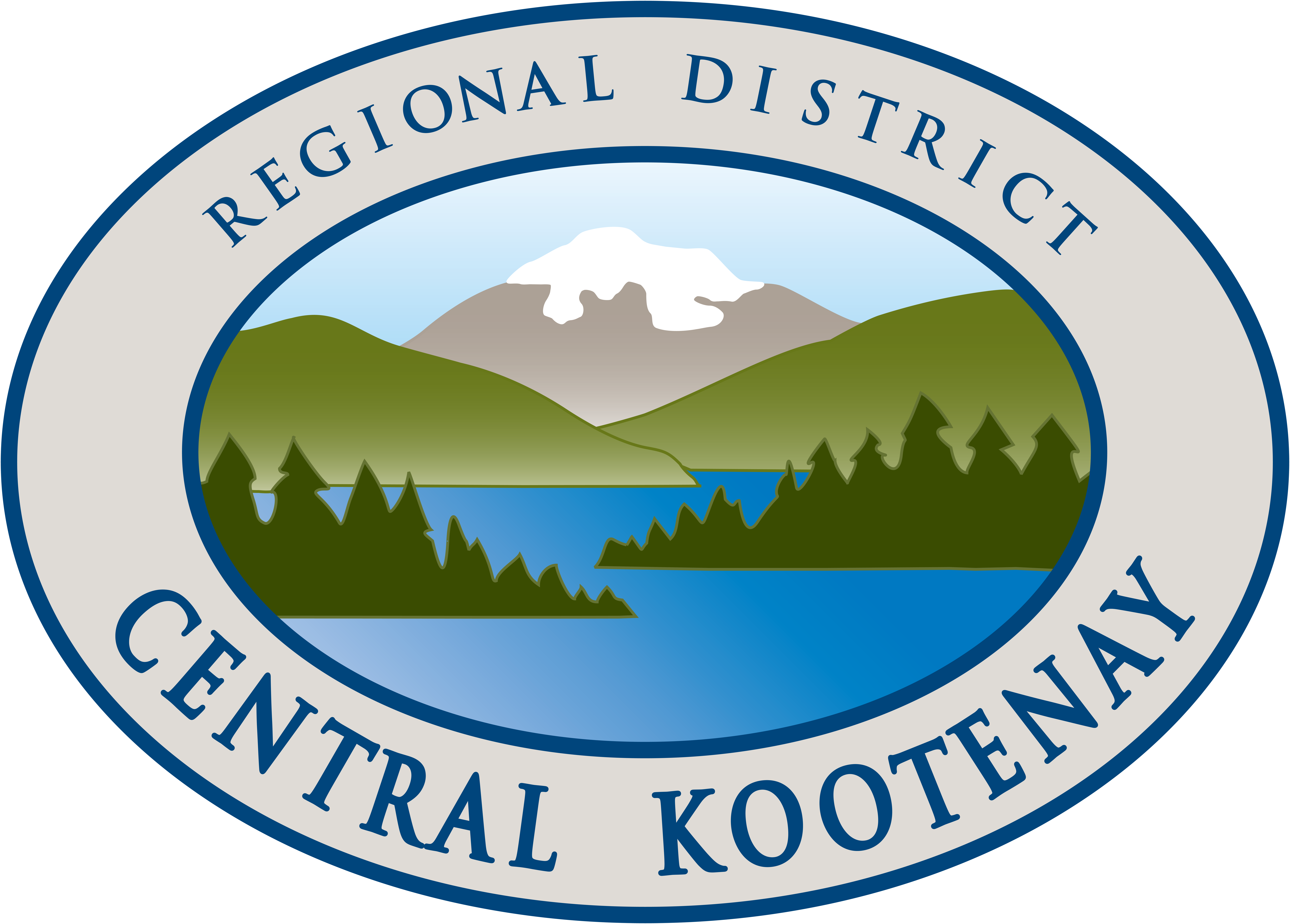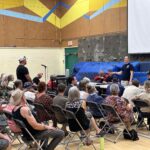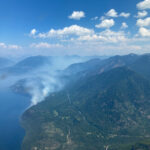Climate action open houses a glimpse into government response to climate change: Page
Climate action and what is being done locally in that regard will be laid bare later this month as the regional district’s climate action open house tour touches down at the edge of Nelson.
The process has been “diving really deep and engaging around” the topic of climate change, said the City of Nelson director for the Regional District of Central Kootenay (RDCK) board, Keith Page.
After a controversial start earlier this year — arising in public backlash and fear of possible intimidation at public meetings — a redesigned climate action engagement process was initiated.
The release of the RDCK’s Climate Actions Plan was put on hold as a redesigned process “based on feedback received from the community” was created. Page said the open house model has provided “an opportunity to engage people around that local government work, around that local planning.”
That information is being incorporated into a plan of what people in the RDCK would like to see regional government do when it comes to environmental stewardship, he said.
“It really is for the benefit of everybody. I think you are seeing a great opportunity for people to discover, with a lot more clarity and depth and authenticity in the work that is going on at the local government level through this topic, and we are able to have those conversations in an increasingly respectful manner,” he said during the Sept. 26 City council meeting at Nelson City Hall.
The tour sets down in Nelson at the North Shore Hall on Oct. 17 (4-7 p.m.), but before that it will be in Castlegar on Oct. 4 at the Selkirk Room of the Castlegar and District Community Centre.
It will also travel to Nakusp (Oct. 10), Robson (Oct. 11) and Taghum on Oct. 16, before finishing in Burton, Appledale and Procter.
The regional district has used dialogue circles in the process — including community members with “diverse view points” — and has included panel discussions on key actions pathways such as transportation, land use, food, agriculture and water.
Get ‘er done
The RDCK Climate Action public engagement process has multiple opportunities for residents to get involved and provide feedback. It includes a public engagement platform and in-person dialogue circles, in addition to the community open houses. Click here for the complete schedule.
Planning the plan
In February the work began to prepare a four-year climate action plan — starting in 2023 — to look ahead to climate action targets to reduce carbon pollution (greenhouse gas emissions) by 50 per cent below 2018 levels by 2030, and 100 per cent by 2050.
The climate action plan focused on community and corporate low carbon resilience.
“This approach supports communities in advancing towards a strong and adaptable future by bringing together reduction of carbon pollution (climate mitigation), community resilience (climate adaptation) and other local government priorities,” said Paris Marshall Smith, RDCK sustainability planner.
What was proposed by staff was to fund the development of a guiding plan, of which it is only a small portion of the overall budget, Smith said, which is actually taking action and engaging with the communities.
“This is what we see as the critical edge for climate action is to engage with community. And we do have numerous actions that we can build upon through the work with 100 per cent renewable energy, and we do intend to meet with small communities and have face-to-face conversations and understand how to create a rural, localized, RDCK appropriate plan,” she said.
The intent of the on-going climate action community engagement was twofold, Smith contended: First, to create an internally-embedded RDCK climate action culture that prioritizes low carbon and adaptive measures in all decision making.
“Second, to create an external climate action culture where residents see the RDCK as partner in climate action, a place for information, accountability and coordinated action, with the overall goal of RDCK residents, institutions, and industry having a greater motivation for climate action and commitment to 2030 science-based targets,” she said.
Source: The Nelson Daily, February 2023
Climate Action response
“When responding to the climate crisis, rural communities are uniquely challenged.
“RDCK rural communities face pressures such as watershed development, geohazards, limited (and often no) access to public transit and power grid instability.
“This context requires a different response than the more common urban climate action model.
“RDCK Climate Actions supports actions that reflect the RDCK rural reality and identifies methods to understand and target other community and neighbourhood specific solutions through tools like hosting learning labs, think tanks, hubs and pilots.”
Some investigations include:
- active and low carbon mobility;
- investigate options to offset fossil fuel intensive back-up systems and create more reliable power supply;
- investigating low carbon options for wildfire fuel treatments;
- rural business support; and
- investigating re-use of construction and de-construction materials.
The cost for the plan is estimated at $1 milion plus staff time over the four-year period.
Source: RDCK April 20 agenda
Taking it to the streets
Between September 2022 and April 2023 the draft RDCK Climate Actions was shared with residents, First Nations, community groups and member municipalities through six online community sessions, two in-person community sessions, two radio interviews and over 15 phone conversations.
“These conversations were with residents across the RDCK and largely relayed a positive response to the plan,” said Marshall Smith.
As requested, RDCK staff also met with individual groups to hear their specific concerns and questions.
“This shorter less intensive period of engagement was endorsed by the board based on an understanding that residents were over-engaged — due to meetings about FireSmart, resource recovery, official community plans, new development permit areas etc. — and, that given the many years of discussion and engagement regarding climate action, it would be best to avoid a full engagement,” said Marshall Smith.
“In light of this, it should be noted that trying to balance the consultation pendulum is tricky and will elicit a predictable response – a low level of engagement will be met with criticism, by some, for lack of time to review and participate; and a high level of engagement will be met with criticism, by some, for being too expensive, too much time and too onerous.”
Source: RDCK April 20 agenda



























Comments